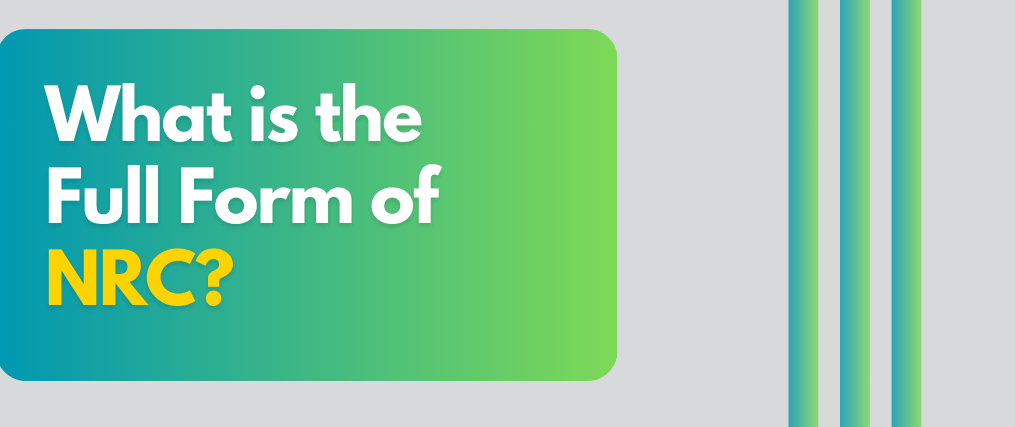
Introduction:
NRC Full Form: In recent times the phrase “NRC” has gained significant attention, particularly in relation to Indian issues and citizenship discussions. However, for many the term is still shrouded in confusion and misunderstood. This blog will attempt to dispel the confusion surrounding this National Register of Citizens (NRC) by shedding some light on its mission its controversies, implications, and purpose.
What is NRC?
The National Register of Citizens (NRC) is basically is a list of names of authentic Indian citizens who reside in a specific state or territory. Its purpose is to find and eliminate those who have been deemed illegal from this listing. The NRC procedure was first implemented within Assam, India, in 1951 in the wake of the Census of the same year. The attention that has been paid recently to NRC however, in large part is due to its planned application in other areas of the United States, specifically as a result of Citizenship Amendment Act (CAA) which was passed in the year 2019.
The Assam NRC
The most prominent implementation of NRC to date has been in the state Assam. The aim of the NRC was to locate immigrants without a passport, mainly from Bangladesh who crossed to Assam over a period of time. The process involved examining documents for evidence of citizenship and those who were unable to prove the validity of their Indian citizenship were omitted in the end NRC list. This is the Assam NRC has been an issue of intense debate and concerns have been raised regarding the exclusions, possible violations of human rights, and the logistics of establishing the citizenship of a person based on documents from the past.
Controversies Surrounding NRC
Although the NRC was first introduced within Assam to address regional issues, plans to expand it across the country have provoked a great deal of debate. Some critics argue that a national NRC will have a significant impact on the most marginalized communities, including Muslims as well as other minorities as they would have to show proof of their citizenship. There are also concerns about the fairness and feasibility of such a process at a national level due to the variety and complex nature of the Indian population.
NRC and CAA
The link to both the NRC as well as the Citizenship Amendment Act (CAA) makes the matter more complicated. The CAA was passed in December of 2019, offers the possibility of citizenship to immigrants who are not legally documented from minority religions (Hindu, Sikh, Buddhist, Jain, Parsi, and Christian) from countries that are neighboring (Pakistan, Bangladesh, and Afghanistan) who arrived in India on or before December 31st of 2014. Some critics argue that when it is coupled along with NRC and the NRC, the CAA can be used as a way to deny citizenship based on religion and further marginalize Muslim communities.
Conclusion:
The National Register of Citizens (NRC) is a complicated and controversial issue that raises the issues of citizenship, identity and inclusion. Although those who advocate for it claim that it is essential for national security and also to tackle the issue of illegal immigration those opposed raise concerns about the possibility of exclusion and discrimination. While discussions about the NRC continue it is essential to think about the implications for the right to dignity and rights of every person regardless of religion or linguistic background.